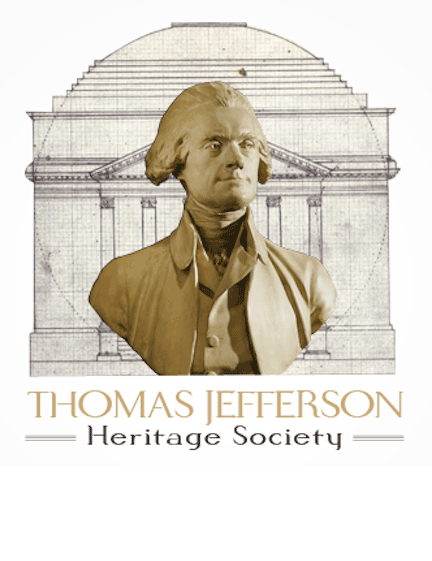Fact Trumps Fiction On Jefferson Story
By Robert F. Turner, 6/1/2002
HISTORIAN Henry Steele Commager observed that no Virginian and probably no American did more to oppose slavery than Thomas Jefferson. In 1784, Jefferson proposed to the Continental Congress that ''there shall be neither slavery nor involuntary servitude'' in any of the new states. He lost by a single vote. More than eight decades would pass before the 13th Amendment would bring a legal end to slavery here.
Jefferson was imperfect, like all human beings. He not only inherited slaves but during his life bought and sold slaves (often to unite families). He died so deeply in debt that he lacked the legal ability to free more than a small number of his slaves, who as ''property'' under Virginia law were subject to the claims of his creditors.
The allegation that Thomas Jefferson fathered children by Sally Hemings was first published in 1802 in fulfillment of a blackmail threat by one of the most disreputable scandalmongers of the era, James Callender, who hated people of color and expected that the rumor would cost Jefferson his reelection.
Callender admitted his numerous attacks were intended to extract ''ten thousand fold vengeance'' because Jefferson had refused his demand for a public job, and not even Alexander Hamilton and John Adams - Jefferson's political enemies - believed the stories because they, like George Washington, had been previously the objects of Callender's libels.
Recent criticism of the Jefferson family for excluding Sally Hemings's descendants from the Monticello Association follows in the Callender tradition.
Callender's charge was founded on the existence of a Hemings child at Monticello named ''Tom,'' who resembled the president. Strong oral history claims this child was Thomas Woodson. And six different DNA tests have proven that Woodson could not have been Jefferson's child. The only Hemings child tied by DNA to any Jefferson paternity was Eston, whose oral history was that his father was not President Jefferson but ''an uncle.'' Jefferson's brother, widely know as ''Uncle Randolph,'' was invited to Monticello days before Eston was likely conceived and is reported to have fathered children by his own slaves.
According to the book ''Memoirs of a Monticello Slave,'' Randolph spent his nights at Monticello playing his fiddle among the slaves and dancing ''half the night.'' He had the same Y chromosome linked to Eston in the DNA tests, as did five sons who likely accompanied him. When Randolph remarried, Sally Hemings stopped having children.
I was one of more than a dozen scholars - many of them authors of books about Jefferson - who studied this issue for a year and issued a 550-page report concluding by a 12-1 vote that Thomas Jefferson was probably not Eston's father.
Our report disclosed that Hemings advocates had relied upon altered historical evidence and many of their ''facts'' were simply not true, such as that Jefferson freed all of Sally's children when they turned 21 or that they were treated better than Sally's brothers or nephews at Monticello.
Even though she lived as a free woman in Charlottesville for years, neither Sally nor any of her children reported that Thomas Jefferson had fathered her children. It was 50 years after Jefferson's death that an anti-Jefferson journalist alleged that Madison Hemings had made the claim.
Madison could not have known the truth of most of the relevant facts attributed to him, which occurred before his birth. Some of the few that can be checked are false. The story hardly outweighed the eyewitness testimony of overseer Edmund Bacon, who told of often seeing a man other than Jefferson leaving Sally's room early in the morning around the time Eston was conceived.
This ought not be a racially divisive issue. From the little we know about her, Sally Hemings was predominantly white by blood and appearance. She was classified as white in the 1830 Census. In denouncing the ''despotism'' and ''degrading submissions'' inherent in the sexual exploitation of slave women by their masters, Jefferson in 1781 focused specifically on its horrible influence on the children of masters.
On the way to Paris six years later, Sally (barely in her teens) and Polly Jefferson lived for three weeks in London with Abigail Adams, who cautioned Jefferson that Sally lacked the maturity of his 8-year-old daughter.
Yet Callender and others would have us assume that soon thereafter Jefferson preyed upon this child, who clearly had no meaningful power of ''consent'' and was in daily contact with Jefferson's beloved daughters.
Honest people may disagree, but to brand total strangers with the epithet ''Whitey'' because they believe Jefferson and the oral history passed down by Eston Hemings over the blatantly racist Callender is as unfair as it is unprofessional.
Professor Robert F. Turner was chairman of the Jefferson-Hemings Scholars Commission. Copyright 2002 Globe Newspaper Company. This story ran on page A15 of the Boston Globe on 6/1/2002.
